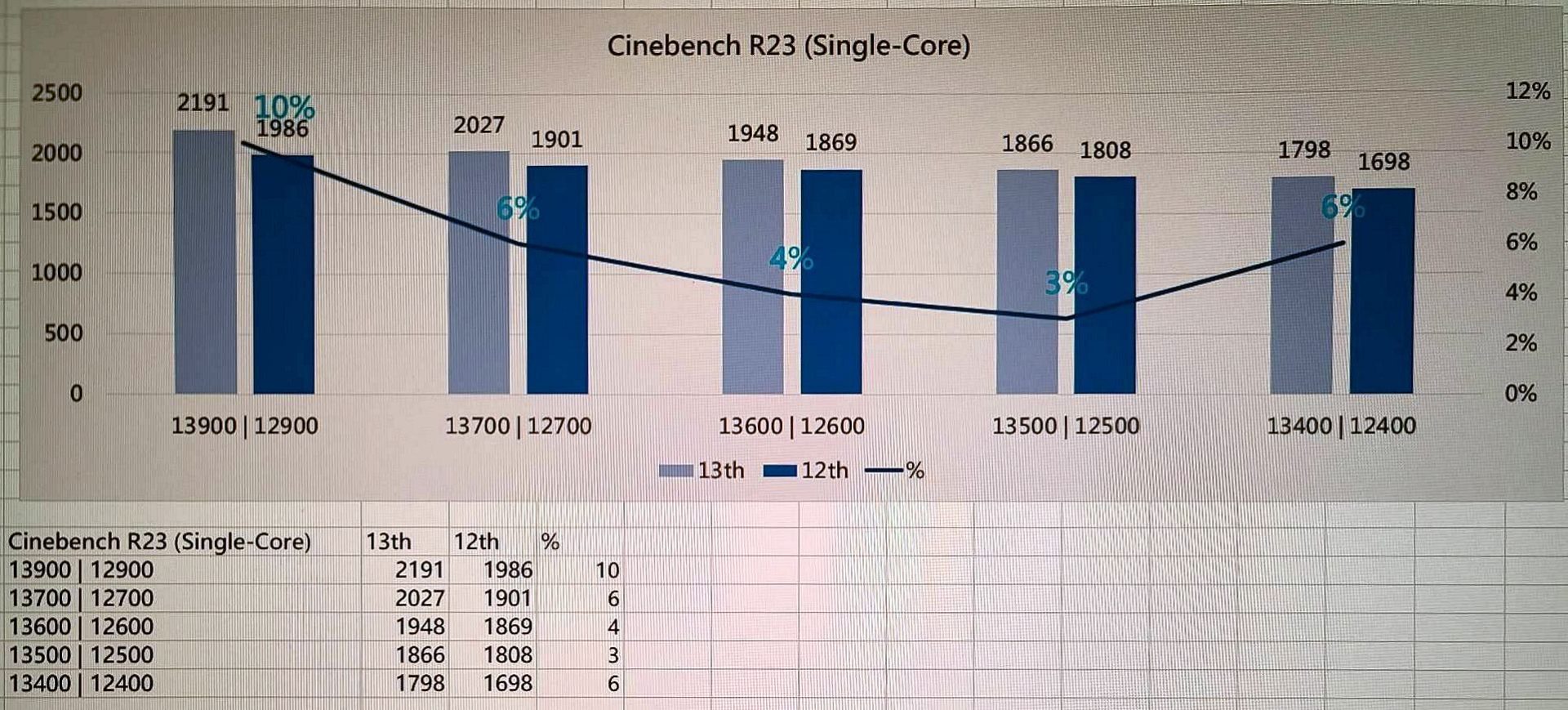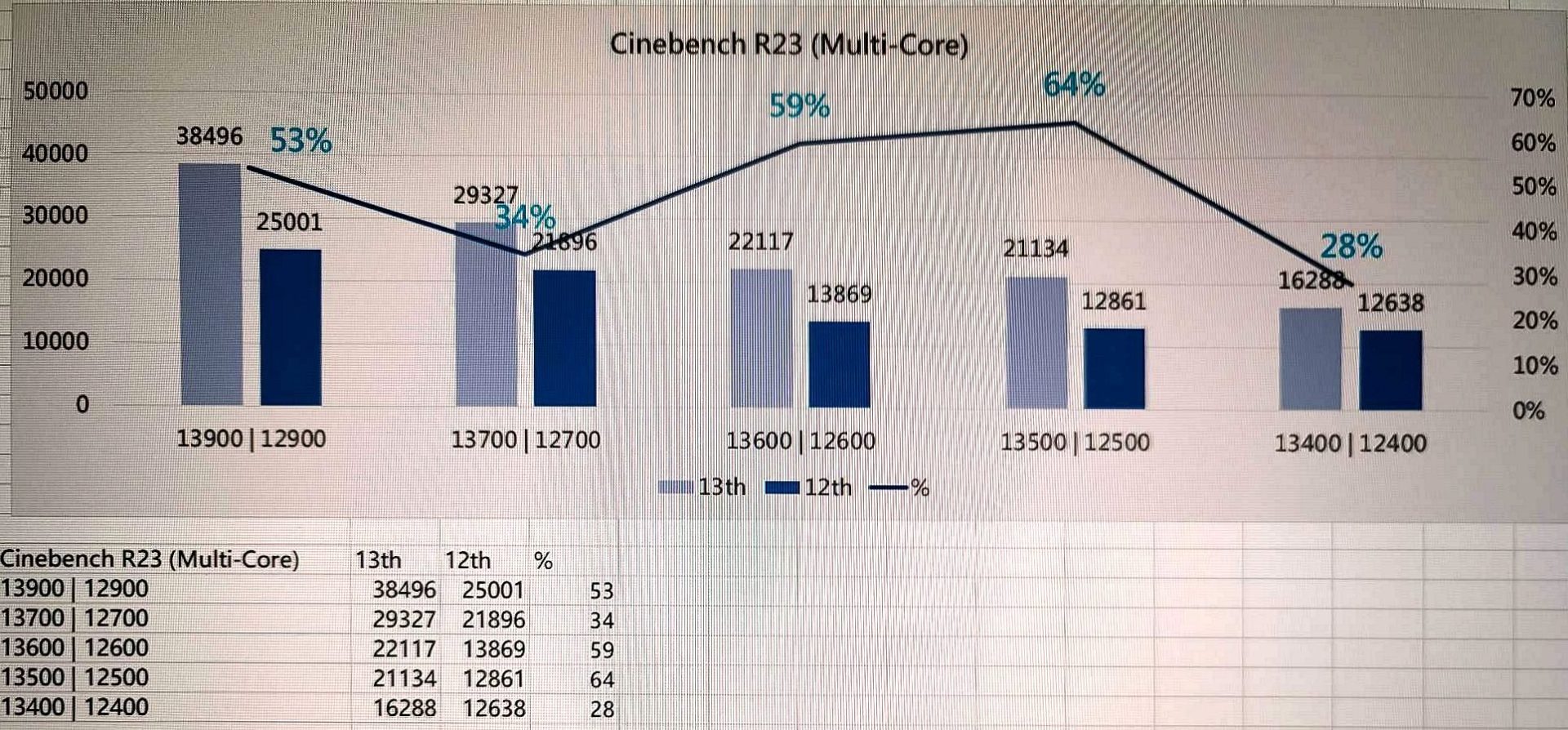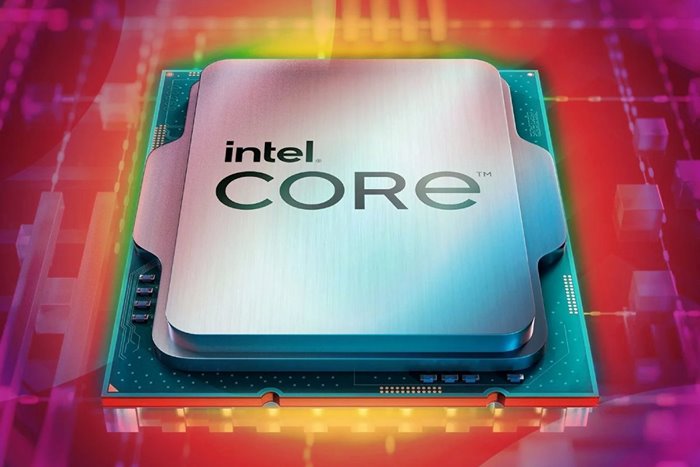Intel’s Fireworks In The Economic Category; 65-Watt Processors Of The 13th Generation Are 64% Faster Than Before
The Results Obtained From The Cinebench Benchmark Show: The Performance Speed Of Intel’s 65-Watt 13th Generation Processors Is 28 To 64% Faster Than Their 12th Generation.
According to the results of the tests conducted by chi11eddog, the performance of the 13th-generation Intel processors has been significantly improved compared to their previous models. These tests were performed on an unknown motherboard for all models of Intel’s 13th-generation processors, and their performance was compared with 12th-generation models.
The performance test of the 13th-generation Intel processors compared to their previous models was performed on a system with the same motherboard and memory. Still, we do not know if the memory of this system was DDR5 or DDR4.
These processors were tested with only one benchmark, and it is impossible to comment on their gaming performance based on the results obtained. However, the Cinebench benchmark has become one of the most popular tools for measuring processor performance today.

(Cinebench single-core performance score of 13th generation Intel processors)
According to Video cards, Intel’s Core i9-13900 was about 10% faster than its previous generation in the Cinebench single-core performance test. This processor also appeared up to 53% faster in multi-core performance than its 12th-generation counterpart. The frequency of the newer model is 500 MHz higher, and it uses eight more efficient cores. This feature is one of the most important reasons for the significant increase in its performance compared to the previous generation.
The speed of other models of the 13th generation Intel processors was 3 to 6 and 28 to 64% higher than their 12th generation in the single-core and multi-core performance sections, respectively. The most significant jump among them is related to the non-K model of the Core i5-13500 processor, which is 64% faster than its previous generation. Of course, the speed of this model is not very interesting in the single-core performance section.

(Multi-core performance score of 13th generation Intel processors in Cinebench)
The maximum power consumption of all 13th-generation Intel processors is 65 watts by default, and they are compatible with current LGA1700 motherboards and future models. These models also support DDR4 and DDR5 memory.
Intel will unveil five models of its 13th generation processors along with new B760 series motherboards on January 3rd.

